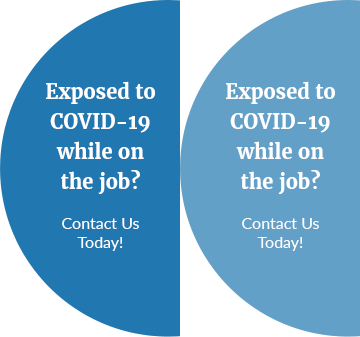Understanding the Discovery Process in a Personal Injury Case
When someone is injured because of the negligence or recklessness of another party, they can file a claim for damages. But if the claim is not settled with the other party’s insurer early on, your lawyer may choose to file a personal injury lawsuit. This puts the case under the jurisdiction of the court, and the parties are required to adhere to the court schedule. During the time leading up to the trial, there is a very consequential period known as “discovery”.
What is Discovery?
Discovery is the formal process by which the parties (to a lawsuit) request and exchange all relevant information related to the case. This process allows each side to find out what information the other side has so there are no surprises during the trial. Discovery is also used to help uncover important and impactful evidence that can be used to strengthen your case or weaken the case of the other side. In short, the discovery process is often a major determining factor in the success or failure of a case.
Types of Discovery in a Legal Case
Discoverable information can be provided in oral, written, or electronic form. In a personal injury case, some of the information that will initially be disclosed during discovery may include:
- Witnesses: The list of individuals who are likely to have information about the case and their contact information.
- Production: The production of all documents, electronic information, and tangible items that may support or defend against a claim.
- Medical Providers: The list of all doctors and other medical professionals who are relevant to the claim.
- Damages: The amount of damages the plaintiff is seeking in each category along with supporting documents and materials related to the extent of the injury and how the losses were calculated.
- Expert Witnesses: Each side must disclose any expert witnesses whose testimony they plan to rely on, the opinions of these witnesses, the basis for their opinions, and their qualifications.
Other information related to the case may be requested by the plaintiff or defendant through various forms of discovery:
- Interrogatories: Written questions from one party that the other party must answer fully and to the best of their knowledge under oath.
- Depositions: A recorded question and answer session with one of the parties involved in the case or a witness. Depositions are conducted under oath with a court reporter recording the questions and answers. They may be conducted in person or remotely – the remote option has been increasingly used during the Covid-19 pandemic.
- Additional Production: One party may ask for the production of specific documents beyond those that are provided during the initial disclosure.
- Subpoenas: Requests for documents and information from a third party that may be related to the case.
- Requests for Admission: A request from one party to the other to admit or deny a statement or series of statements under oath.
- Requests for Inspection: Either party could request an inspection of property or a medical examination. For example, if you were injured in an explosion at a construction site, your attorney might ask for access to the site where the explosion occurred.
What Information is “Discoverable” in a Personal Injury Lawsuit?
The short answer is that any information that is relevant to your case and not privileged is discoverable. This includes anything that you do in the public sphere.
For example, if an insurance company investigator observes you driving to and from work when you are supposed to be staying home and recovering from your injury, this is discoverable information. “Virtual” public information is also discoverable, such as any posts that you put out on social media sites like Facebook and Instagram.
What is not discoverable is information obtained through violations of privacy (such as an insurance company representative videotaping you inside your home) and privileged information. Some examples of privileged information may include confidential communication between you and your attorney, you and your spouse, or you and your religious advisor.
The Importance of Discovery and Choosing the Right Attorney
As you can see, discovery is an extremely critical phase of a personal injury case, and arguably it is the most important phase. This is the time when both sides lay their cards on the table and we find out what hand each side is holding.
During this process, you need an attorney who is experienced and meticulous with the ability to uncover all of the important pieces of evidence to help substantiate your claim and put you in a position to recover maximum compensation. Your attorney’s advice will also be essential in helping ensure that you do not make any missteps (such as a careless social media post) that might damage your claim.
Although most personal injury cases do not and up seeing the inside of a courtroom, many cases do go through the discovery process after a lawsuit is filed. It is during discovery that settlements are often negotiated, and some cases end up getting settled literally on the steps of the courthouse. If it reaches the discovery phase, the strength of your case and the compensation you ultimately receive will be largely determined by what is revealed during this process.
Work with An Established Pittsburgh Personal Injury Firm
If you or someone close to you suffered an injury in Pennsylvania, you need strong legal counsel by your side to help navigate the discovery process and other complications involved with a personal injury claim. At Caroselli, Beachler & Coleman, we have several decades of experience successfully representing individuals who have been injured because of someone else’s negligence or reckless actions, and we are ready to go to work for you.
To get started, message us online or call our office today at 412-567-1232 or toll-free at 866-466-5789 for a free consultation with one of our attorneys.






